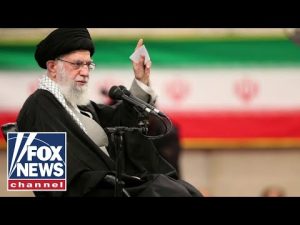In a move that has sparked quite a debate, the White House is making headlines by suggesting a significant change in funding for public broadcasting. The proposal at hand is to pull over a billion dollars in taxpayer money from National Public Radio (NPR) and the Public Broadcasting Service (PBS). The reasoning behind this drastic measure? Some believe these organizations have become politically biased platforms that offer little more than a left-leaning agenda. This has raised questions about the future of beloved programming like “Sesame Street” and “Morning Edition,” and whether certain characters like Big Bird are about to meet the budget guillotine.
Although many may nostalgically recall growing up with Big Bird and the friendly, educational ambiance of PBS, it seems that the laughter may soon be on the chopping block. At the heart of the controversy is the notion that a chunk of public funds has been used in ways that many feel benefit only one side of the political spectrum. For instance, the funding apparently goes beyond domestic programming, as money has also been allocated for a Sesame Street version aimed at children in Iraq, seeking to help them develop civic understanding. Isn’t it peculiar how a show meant for innocent entertainment has crossed international borders to extend its reach into another country’s educational landscape?
Supporters of the funding cuts believe that keeping this taxpayer money flowing to NPR and PBS essentially acts as a financial lifeline for a liberal echo chamber. They argue that these organizations serve as platforms for disparaging conservative viewpoints while consistently failing to present a balanced narrative. This has become particularly problematic in tight election races where media coverage can heavily influence voter opinion. In light of this, some conservative lawmakers are adamantly calling to defund these entities as they believe maintaining current funding sends a message that Republican views are not valued.
Despite the fervor around defunding NPR and PBS, there remain significant challenges ahead. Some members of Congress, typically considered moderate or centrist Republicans, may shy away from supporting such cuts—fearing backlash from constituents who fondly remember childhood favorites. After all, who wouldn’t want to be seen as the villain who threatens to extinguish the innocent laughter of Big Bird and friends? This has caused some lawmakers to tiptoe nervously around the issue, worried that they’ll be painted as the “mean Republicans.” It’s a sad day when defending taxpayer money equates to being the Grinch who stole childhood!
While the notion of defunding these public broadcasting giants appears to be a straightforward discussion, it is anything but simple in the halls of Congress. Lawmakers who would typically oppose budgetary cuts are hesitant to dive into the fray. They may have valid concerns about potential political repercussions or simply prefer to avoid stepping on any nostalgia-heavy toes. However, some congressional members see this as an opportunity to tackle what they perceive to be a larger problem: a culture of state-funded media that they believe fuels bias against conservatives.
Time will tell if this proposal gathers enough steam to make actual waves. It seems the White House is not just taking on NPR and PBS but is also signaling a broader commitment to questioning how taxpayer dollars are used. While some may mourn the loss of educational programming that once sat comfortably in family homes, others celebrate the possibility of reduced government spending on what they view as partisan platforms. In this theater of politics, all eyes will remain glued to the stage, waiting for the next act in the play of public funding, media bias, and childhood nostalgia. Buckle up, America!







